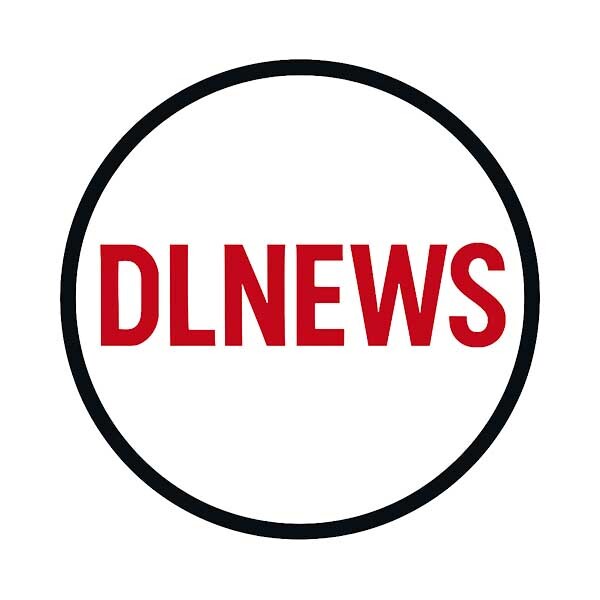 News Staff
News Staff![]() -
Jan 19 -
Breaking News
TICTOC OFFLINE
-
3.5K views -
0 Comments -
0 Likes -
0 Reviews
-
Jan 19 -
Breaking News
TICTOC OFFLINE
-
3.5K views -
0 Comments -
0 Likes -
0 Reviews
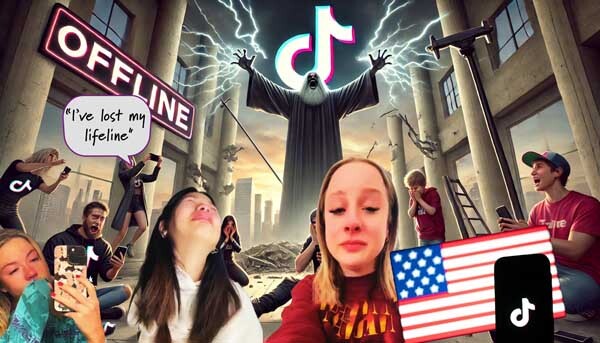
DLNews Breaking News:
They say you don’t know what you’ve got until it’s gone, and for millions of TikTok users in America, that reality hit like a wrecking ball this weekend. The beloved app, the backdrop to countless viral dances, heartfelt confessions, and a fair share of influencer income streams, went dark. For TikTok’s 224,000 U.S.-based creators who depend on the platform for their livelihood, the shutdown felt like an eviction notice served at the speed of Wi-Fi.
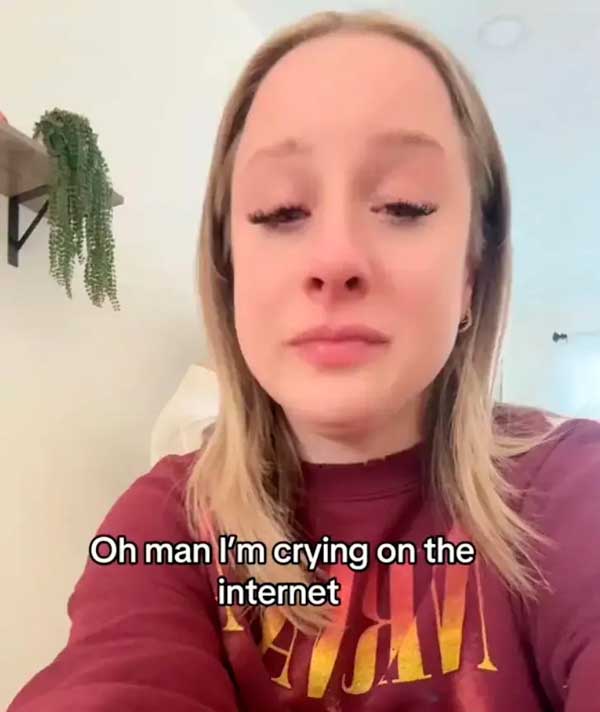
Emily Senn can barely hold back the tears.
“I’ve lost my lifeline,” sobbed Emily Senn, whose 358,000 followers have been her constant companions through life’s chaos. “TikTok was there when no one else was—through the pandemic, my job loss, my divorce. It’s like they’ve erased my voice overnight.” The melodrama may seem excessive, but for Emily and her fellow influencers, the ban wasn’t just about losing a favorite app—it was losing a community, a paycheck, and, for some, a sense of purpose.
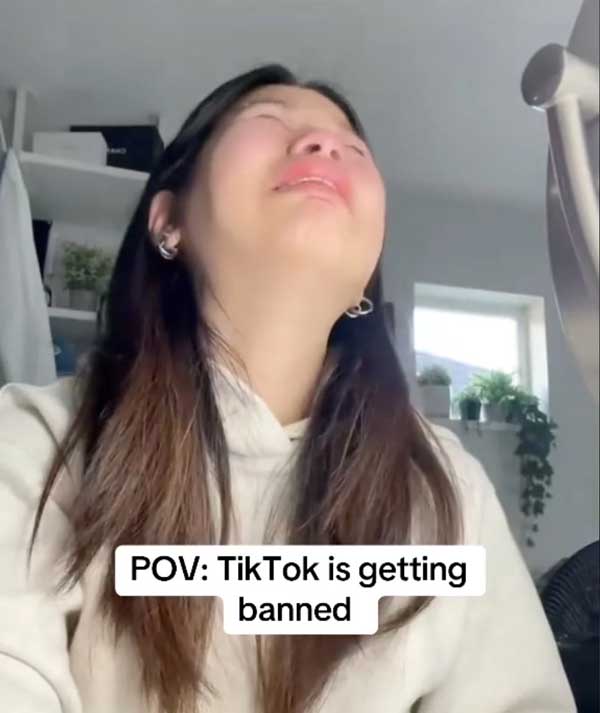
Katie Fang says nothing but cries into the camera while showing her 6 million followers her makeup routine.
Not everyone handled the news with a tissue box. Kelsey Pumel, a bona fide TikTok queen with 2.7 million followers, unleashed her fury with the eloquence of a reality TV contestant. “F**k this country!” she ranted in a viral goodbye video, adding a less-than-polite thank-you to Supreme Court judges: “Thank you, you old farts.” Subtle? No. Cathartic? Definitely.
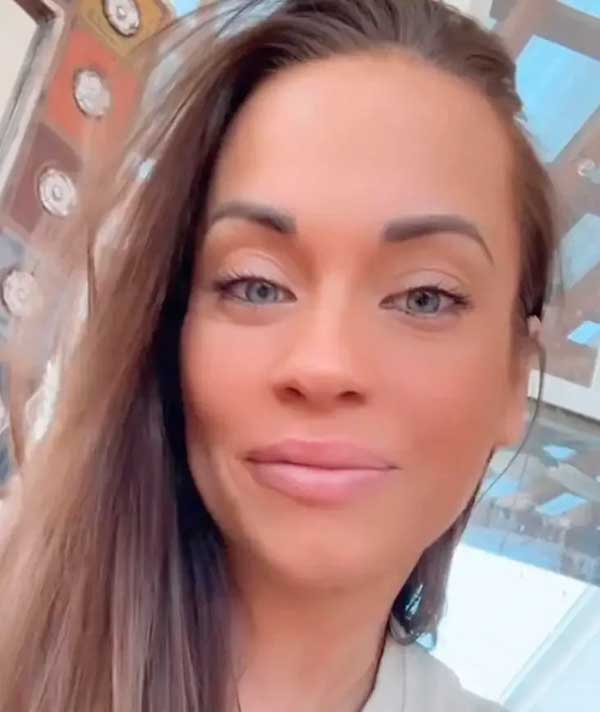
"Thank you, you old farts," Kelsey Pumel said in a TikTok video in response to the Supreme Court decision.
The platform’s abrupt disappearance was the culmination of a political drama worthy of its own Netflix series. U.S. lawmakers, citing national security concerns, demanded TikTok’s Chinese parent company, ByteDance, divest its American operations. When ByteDance refused, Congress brought the hammer down, effectively unplugging the app from American phones. The stated reason? Fears that China could use TikTok to spy on Americans or sway public opinion.
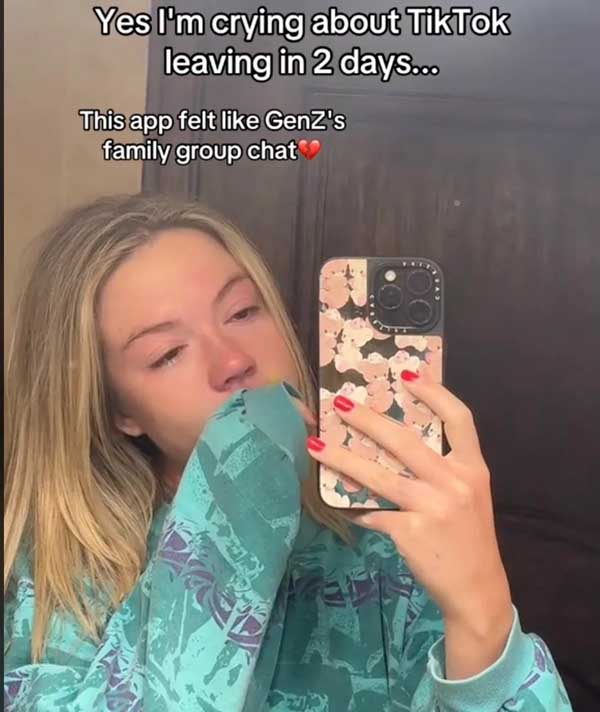
Influencer Colie.1 cries in front of her 8.6 million followers because TikTok felt like the "Gen Z family group chat" to her.
For now, TikTok’s neon sign has gone dark, leaving influencers scrambling to rebuild their followings on other platforms. Some are migrating to Instagram Reels or YouTube Shorts, but the landscape isn’t the same. “TikTok had this magic,” Emily lamented. “The algorithm knew me better than my therapist.”
In an ironic twist, Donald Trump, the same man who first initiated TikTok’s ban during his previous presidency, hinted at a potential reprieve. In a Saturday interview with NBC News, the soon-to-be-president-again mused, “A three-month extension? I think that would certainly be an option we would consider.” Whether this is a genuine olive branch or just classic Trump showmanship is anyone’s guess.
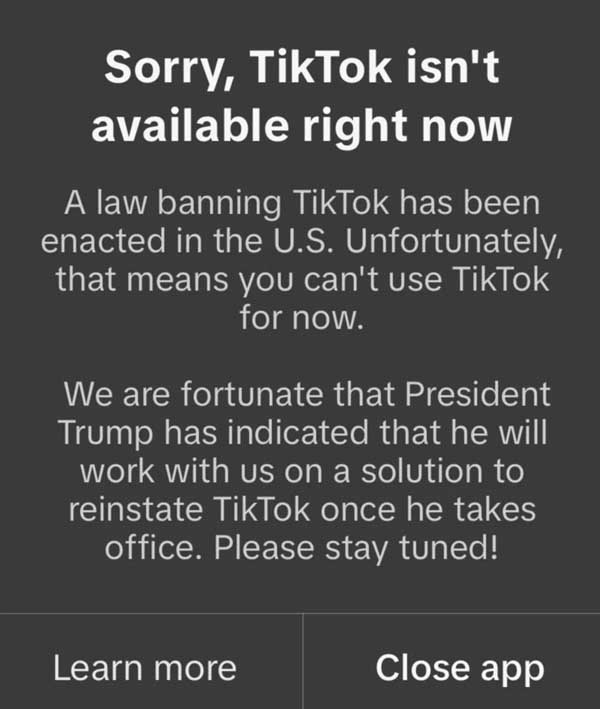
Meanwhile, as TikTok fades into the digital ether, its absence has sparked broader debates about freedom, privacy, and what it means to live in a world where apps shape livelihoods. For some, it’s a wake-up call; for others, it’s a tragic finale. For Emily, Kelsey, and thousands like them, it’s a harsh reminder that the online stage can disappear just as quickly as it appeared—leaving the performers to bow in the dark.

At Desert Local News, connections are everything. We're not just another social networking platform—we're a lively hub where people from all walks of life come together to share stories, spark ideas, and grow together. Here, creativity flourishes, communities grow stronger, and conversations spark global awareness.